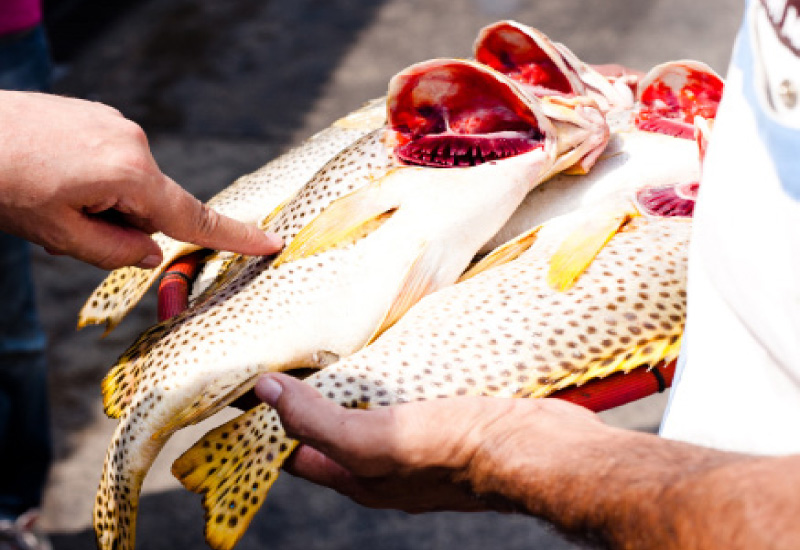Revealing the Source
It comes down to sourcing as well, which is a problem the F&B industry faces even with non-seafood ingredients. Restaurants can choose to get their fish directly from the source i.e. the fishermen, or go through suppliers whether locally or for imports. But does this mean they get the right fish?
Arnold says his QSR brand takes sustainability of fish so seriously, it works with suppliers with credentials to support its internal policy. “We work closely with renowned suppliers in the market, such as F. Smales & Son Fish Merchants which has received the Marine Stewardship Council (MSC) Certification for sustainable fishing.”
And this certification is something London Fish & Chips is now working on as well. Arnold proudly reveals: “Our UK branch has recently been certified by the Marine Stewardship Council (MSC) which is an independent, global, non-profit organisation for auditing fisheries against environmental standards, trace supply chains and similarly audits restaurants.

| Advertisement |
We are the first restaurant in London which is ‘the buyer of the fish or fish products sold as MSC-certified’ thus dealing only with sustainable suppliers and using sustainable fish on our menu. Our UAE branches will also be audited for the certification by the MSC in October 2013, to be the first restaurant in the Middle East to gain such an accreditation.”
Mejia implements a ‘no imported fish’ policy at Baker & Spice Dubai. All the fish used comes directly from the Arabian Sea, as she considers “the Gulf too polluted for my liking”. Her team shops in the local fish market daily, with fish usually from Oman.
Starwood has a vetting procedure for its seafood suppliers to ensure they comply with the hotel’s policy. Fleming explains: “We have a mix of local and imported seafood at Turquoiz. The selection we receive from Europe can be a mix of wild and farmed fish however we have complete confidence in the suppliers as we know that they personally visit European suppliers to check the conditions.”
Eid reveals there are three ways his restaurants source his fish: going to the market; dealing with a supplier; or, having a fisherman sending it directly to the restaurant.
“In all cases my staff members and I know what we serve and what we source very well. We have been in the market for a year now, so almost every supplier knows our particular items,” says Eid. In fact, fishermen at the Deira fish market have even had fish sent back when Eid discovered he had been given unsustainable items — clearly taking a stand on the matter.
Make the Call
Mejia is firm about the fact that chefs and restaurants need to make these tough decisions themselves. “We are in charge of our own destiny and make our own decisions. It is our responsibility to behave responsibly – serving sustainable fish is part of our integrity. Our customers come to us because they know and respect that ethos.”
Fleming agrees that the industry should be responsible for setting the agenda on overfishing, but says consumers also play an important role. “While we at Turquoiz can choose our suppliers extremely carefully and follow the Starwood sustainability policy we also rely on our guests to be aware of the issue and also support our stance.”
Food Dubai leader and founder Laura Allais-Maré has only been in the UAE for seven months, and if she has ever seen hammour offered at a restaurant, she has asked the managers or owners why it is available. She reveals: “And the answer has always been: because my clients want it — at any cost’.”
Allais-Maré is full of praise for Lafayette Gourmet culinary director Russell Impiazzi as someone who champions the cause in the region. She points Caterer Middle East to a recently released YouTube video showing Impiazzi’s trip to the Deira fish market, where the chef chose to buy a pink-eared emperor instead of hammour.
Article continues on next page ...









 Search our database of more than 2,700 industry companies
Search our database of more than 2,700 industry companies









